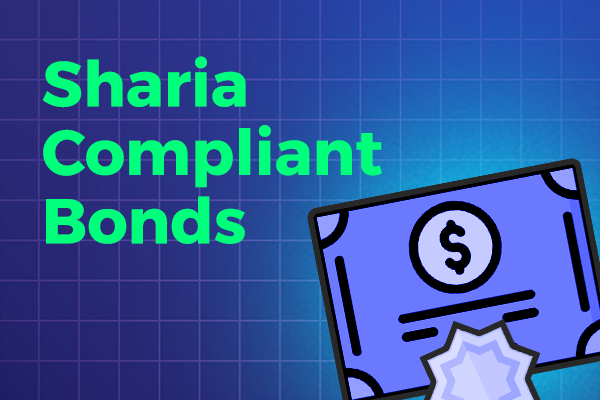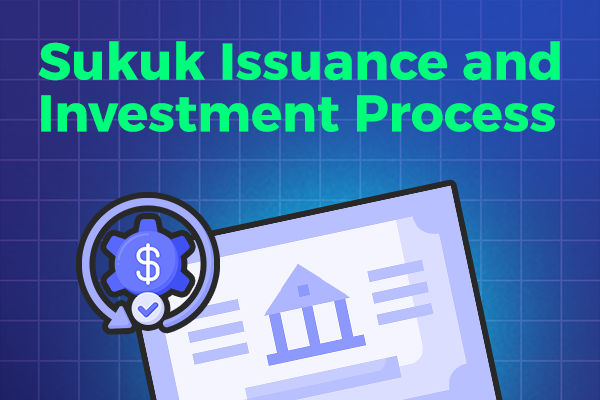As the world becomes more and more connected, investors are increasingly looking for opportunities to diversify their portfolios. Sharia-compliant bonds, also known as sukuk, are one such option that has seen a surge in popularity in recent years. But what exactly are these bonds, and how do they differ from traditional bonds? In this comprehensive guide, we’ll take a deep dive into the world of Sharia-compliant bonds, exploring their origins, structure, and key features. We’ll also examine the growing demand for these bonds and the potential benefits and risks for investors looking to add them to their portfolios. Whether you’re a seasoned investor looking to expand your horizons or a newcomer to the world of finance, this guide will provide you with the knowledge and insights you need to make informed decisions about Sharia-compliant bonds. So buckle up and get ready to learn everything you need to know about this fascinating and increasingly important asset class.
What are Sharia-compliant bonds?
Sharia-compliant bonds, or sukuk, are financial instruments that comply with Islamic law. Sharia law prohibits the payment or receipt of interest, which means that traditional bonds, which typically involve the payment of interest, are not permissible. Instead, sukuk are structured as profit-sharing agreements, where investors receive a share of the profits generated by the underlying assets.
Sukuk can be used to finance a wide range of projects, including infrastructure development, real estate, and corporate financing. They are typically issued by governments, corporations, or other entities seeking to raise capital. The proceeds from the sale of sukuk are used to fund these projects, and investors receive a share of the profits generated by the underlying assets.
Sukuk can be structured in a variety of ways, including as asset-backed securities, where the underlying assets serve as collateral for the bonds, or as project finance securities, where the bonds are backed by the revenue generated by a specific project.
Key differences between Sharia-compliant and conventional bonds
The key difference between Sharia-compliant and conventional bonds is the way in which they generate returns for investors. Conventional bonds typically involve the payment of interest, which is not permissible under Islamic law. In contrast, sukuk are based on profit-sharing agreements, where investors receive a share of the profits generated by the underlying assets.
Another key difference is the way in which sukuk are structured. Unlike conventional bonds, which are typically issued as debt securities, sukuk can be structured in a variety of ways, including as asset-backed securities, project finance securities, or as trust certificates.
Finally, the way in which sukuk are rated is also different from conventional bonds. While conventional bonds are typically rated by credit rating agencies, sukuk are rated by Sharia scholars, who evaluate the compliance of the structure with Islamic law. This means that there is a greater emphasis on the underlying assets and the structure of the sukuk, rather than the creditworthiness of the issuer.
Sharia-compliant bond structures
As mentioned earlier, sukuk can be structured in a variety of ways, depending on the nature of the underlying assets and the needs of the issuer. The most common types of sukuk structures include:
**Asset-backed securities:** In this structure, the sukuk are backed by specific assets, such as real estate or infrastructure projects. The sukuk holders have an ownership interest in the underlying assets, and receive a share of the profits generated by those assets.
**Project finance securities:** In this structure, the sukuk are backed by the revenue generated by a specific project, such as a toll road or power plant. The sukuk holders are entitled to a share of the revenue generated by the project, and bear the risk of any project-related losses.
**Trust certificates:** In this structure, the sukuk are issued by a trust, which holds the underlying assets on behalf of the sukuk holders. The sukuk holders have an ownership interest in the trust, and receive a share of the profits generated by the underlying assets.
Benefits of investing in Sharia-compliant bonds
There are several potential benefits of investing in Sharia-compliant bonds, including:
**Diversification:** Investing in sukuk can provide diversification benefits to investors, as they offer exposure to a different asset class than traditional bonds. Sukuk are also less correlated with other asset classes, which can help to reduce overall portfolio risk.
**Stable returns:** Sukuk are typically structured to provide stable returns to investors, as they are based on profit-sharing agreements rather than the payment of interest. This can make them an attractive investment option for investors seeking stable income streams.
**Ethical investing:** Sharia-compliant investing is based on ethical principles, which can be attractive to investors who are looking to align their investments with their values.
Risks associated with Sharia-compliant bonds
As with any investment, there are also risks associated with investing in Sharia-compliant bonds. Some of the key risks include:
Lack of liquidity: The sukuk market is relatively small and illiquid compared to the conventional bond market. This can make it difficult for investors to buy and sell sukuk, and can also result in wider bid-ask spreads and higher transaction costs.
Market and credit risk: Sukuk are subject to market and credit risk, just like conventional bonds. The value of sukuk can fluctuate based on changes in interest rates, creditworthiness of the issuer, and other market factors.
Structural risk: The structure of sukuk can also create additional risks for investors. For example, in an asset-backed securities structure, the value of the sukuk may be tied to the performance of the underlying assets, which could be affected by factors outside of the issuer’s control.
The global market for Sharia-compliant bonds
The market for Sharia-compliant bonds has grown rapidly in recent years, as demand for Islamic finance has increased. According to the Islamic Finance Development Report 2020, the global sukuk market reached a total value of $476.3 billion in 2019, up from $447.2 billion in 2018.
The majority of sukuk issuances are concentrated in Malaysia and the Gulf Cooperation Council (GCC) countries, with Saudi Arabia, the United Arab Emirates, and Malaysia accounting for the largest share of sukuk issuances. However, sukuk are also becoming increasingly popular in other regions, including Europe and Africa.
How to invest in Sharia-compliant bonds
Investing in Sharia-compliant bonds can be done through a variety of channels, including through banks, asset managers, and specialized Islamic finance firms. Investors can also invest in sukuk through exchange-traded funds (ETFs) or mutual funds that focus on Islamic finance.
It’s important for investors to do their due diligence when investing in sukuk, and to carefully evaluate the structure and creditworthiness of the issuer. Investors should also be aware of any additional risks associated with the specific sukuk structure, such as market or structural risk.
Sharia-compliant bond issuers and ratings
Sukuk can be issued by a wide range of entities, including governments, corporations, and other organizations. The creditworthiness of the issuer is an important consideration for investors, as it can affect the risk and return profile of the sukuk.
In addition to creditworthiness, sukuk are also rated by Sharia scholars, who evaluate the compliance of the structure with Islamic law. This rating process is different from the credit rating process used for conventional bonds, and emphasizes the underlying assets and structure of the sukuk, rather than the creditworthiness of the issuer.
Conclusion
Sharia-compliant bonds, or sukuk, are becoming an increasingly popular option for investors seeking to diversify their portfolios and align their investments with their values. Sukuk are structured as profit-sharing agreements, and can be used to finance a wide range of projects. While sukuk offer several potential benefits to investors, including diversification and stable returns, there are also risks associated with investing in this asset class. It’s important for investors to carefully evaluate the structure and creditworthiness of the issuer, and to be aware of any additional risks associated with the specific sukuk structure. Overall, sukuk represent an exciting and increasingly important asset class that investors should consider as part of a diversified investment portfolio.




